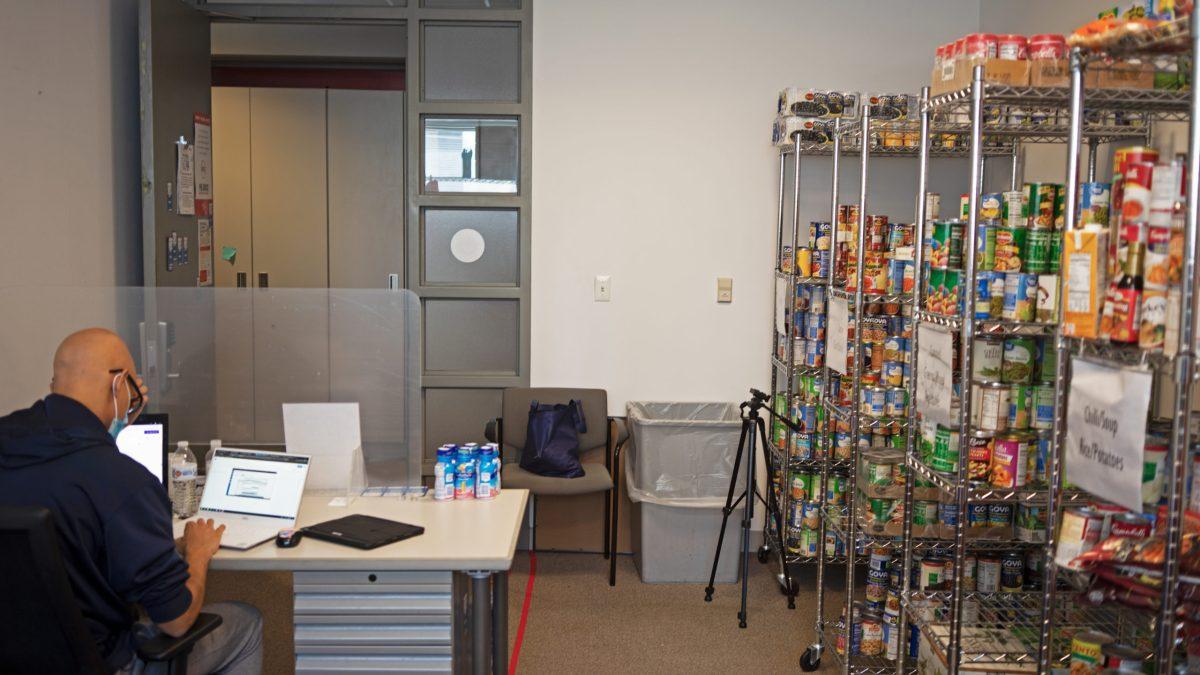On April 13, the Department of Human Services announced increased funding for New Jersey’s Supplemental Nutrition Assistance Program, colloquially referred to as food stamps. The recently passed Consolidated Appropriations Act 2021, signed Dec. 27, 2020, temporarily expanded the program’s eligibility to include college students who are enrolled in at least half-time and are eligible for work study programs or have an expected family contribution of $0 in the current academic year; ordinarily, students enrolled in at least half-time higher education institutes are ineligible for the program. This recently passed legislation, which will remain in effect until at least 30 days after the COVID-19 public health emergency is officially lifted, further highlights the growing issue of food insecurity, particularly among college students.
The NJIT Food Pantry, located on the 4th floor of the Campus Center in room 478, is one of NJIT’s initiatives for addressing food insecurity on campus. Following NJIT’s first Homecoming food drive in Fall 2018, which helped create the initial stockpile of donations, the pantry officially opened in February 2019. It has continued operations since then, even following through summer appointments.
“There has been a trend across the United States where colleges basically realized that there were food insecure students on their campuses,” said Amber Danku, Assistant Director for Commuter Life & Operations. She also serves as the operating manager of the NJIT Food Pantry, which falls under the Office of Student Life. “Back in 2012, there were only 88 food pantries across the whole United States on college campuses. Now there are about 700 plus. It’s not necessarily solving the issue — it’s more of a band-aid on the bigger issue of food insecurity, but NJIT wanted to take a step towards helping our students.
“For the first year ending with the pandemic in the spring of 2020, we had 1389 appointments with 266 unique users on campus. So, there were 266 total students who used [the food pantry] within that year,” said Danku. The pantry is planning on sending out a survey in May to further gauge students’ level of food security on campus. “This year, we are a little bit lower than that because we have fewer students on campus, but the expectation is that when students come back, we may have a large increase in appointments and the number of students actually using the pantry.”
As with most other aspects of university life, the food pantry has adapted in some ways to the pandemic. Students and staff members follow a number of COVID-19 precautions, such as scheduling and confirming appointments virtually before in-person pickups and incorporating social distancing plastic dividers. One of the most significant changes is that “rather than allowing students to walk around the food pantry to select their preferred food, they are required to stand behind the red line upon entering and have to point out what they want instead,” according to Logan Reyes, a junior information technology major who began working for the NJIT Food Pantry in the beginning of the Fall 2020 semester. As an assistant, he has to organize food on shelves, discard any expired food, pack food bags for students, accept shipments and serve any students who are in need on a weekly basis.
“Pandemic or not, there will always be students in need of assistance to mitigate food insecurity. I feel that with less people commuting to and living on campus because of online classes, food insecurity is definitely more prevalent,” said Reyes. “When people are obligated to come to campus for classes, the food pantry is convenient and can assist a lot more people. With online classes, people may feel that the transportation is not worth it, and will remain food insecure. I am hoping that in the Fall 2021 semester with most classes in-person, we can reach more students.”
Although numbers of appointments currently may be on the lower end, both Danku and Reyes encourage students to benefit from the food pantry and are optimistic that with an in-person Fall 2021 semester, more people will be able to access the food pantry. All members of the NJIT community are permitted to visit the pantry weekly, provided they have a valid NJIT ID.
“There is a lot of supply. To encourage my peers to come to the food pantry, I always make this joke: ‘we have so many beans!’ This joke is completely true. External donations, fundraising events from NJIT fraternities and sororities and the wonderful NJIT community have allowed for the food pantry to consistently maintain full shelves,” Reyes said. Inventory in the food pantry includes a wide variety of nonperishable items beyond beans, including oatmeal, cereal, soup and even macaroni. “As mentioned before, with less people commuting to or living on campus, sometimes the demand is not as high as we would like. As the weather warms up, I am confident we will see more people coming to the food pantry.
“If you or an NJIT peer are experiencing food insecurity, please do not hesitate to reach out for help. You are a part of the Highlander community just as much as we are. Do not feel embarrassed if you need food assistance. Our mission is to provide you with a support system so that you can fully dedicate yourself to being a successful student!”




























